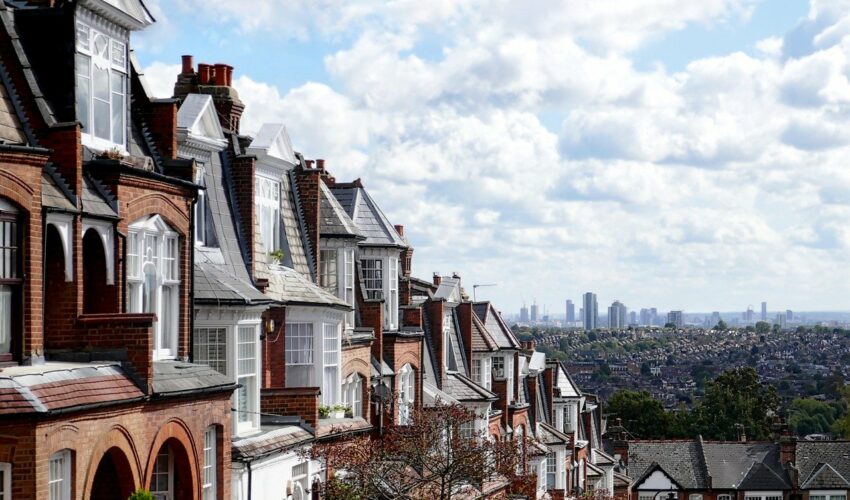When buying or selling a property with ‘vacant possession’ the property needs to be empty on the day of completion. This means the sellers or tenants have moved out and removed all of their belongings, only leaving behind items that have been agreed with the buyer. A tenant renting a property will expect the landlord to give vacant possession and a landlord will expect the tenant to provide vacant possession when the lease comes to an end (either at the end of the term or through the exercise of a break). In addition, a property developer, acquiring a site for development, may insist upon vacant possession if he/she intends to redevelop or demolish an existing building. In this article, what does vacant possession mean UK, we take a look at exactly what this means.
Free Initial Telephone Discussion
For a free initial discussion on how we can advise you on the implications of vacant possession, get in touch with us today. We are experienced in dealing with all aspects of this including how to ensure you get vacant possession on a property. We will review your situation and discuss the options open to you in a clear and approachable manner. Early expert legal assistance can help ensure you avoid the stress of dealing with these issues on your own. Simply call us on 0345 901 0445 or click here to make a free enquiry and a member of the team will get back to you.
What is Vacant Possession?
Vacant possession means that the property must be free of all people and chattels. The definition of people is quite straightforward but the meaning of chattels needs some consideration. The test here is whether the chattels left behind substantially interfere with or prevent the enjoyment of the right of possession for a substantial part of the property.
When buying or selling a residential property, is vacant possession required?
If you’re buying or selling with tenants already living in the property, the seller must provide you with the tenancy agreements and any information relevant to the tenancies. If you are the buyer, you can ask questions about the tenancies, and details of the tenancies will also be listed in the contract for sale.
Buying a property with vacant possession
If you are buying a property from a seller who lives at the address, they may not be able to move out before the date of completion, as the purchase of their new home may be dependent on the sale.
When the exchange of contracts takes place, there’s usually a gap of a week or two before completion. During this time the seller is likely to be living at the property but they will be obliged to leave by the time the sale completes. If you don’t intend to live at the property it’s still a good idea to visit the property immediately after completion to make sure it has been vacated.
If you’re buying a property with a tenant or occupier living there who isn’t the seller there is a risk that the occupier may refuse to move out. Consequently, it would be a good idea to insist upon vacant possession as a condition of the purchase, or alternatively, a clause can be inserted in the contract to allow you to inspect the property on the day of completion so you can be certain that the property is actually vacant.
Selling a property with vacant possession
If you sell a property with vacant possession, you or your tenants can stay there up until the day of completion. After contracts have been exchanged, you’ll be under a contractual obligation to leave the property or remove your tenants on completion day, by the time specified in the contract.
All chattels must be removed from the property unless previously agreed with the buyer. If you or your tenants do leave behind furniture, rubbish, or any items that prevent the buyer from immediately using the property, you may be breaching the terms of your contract and the buyer could make a claim against you.
As the seller, it’s your responsibility to make sure the property is vacant on completion. If you are relying on your tenants to move out then you have little physical control over when the property is vacated. If the tenants don’t leave on time or leave behind belongings or rubbish, you may be unable to complete the sale with vacant possession. This is likely to delay completion or result in a claim from the buyer.
In light of this, it is probably a good idea to vacate the property prior to exchange. You will inevitably miss out on some rent but it is a better option than having tenants still in the house after you have sold it.
How we can help
We have a proven track record of helping clients deal with vacant possession issues. We will guide you through the process and ensure all checks are carried out swiftly and efficiently and we firmly believe that with the right solicitors by your side, the entire process will seem more manageable and far less daunting.
How to Contact Our Commercial Property Solicitors
It is important for you to be well informed about the issues and possible implications of buying or selling property with vacant possession. However, expert legal support is crucial in terms of ensuring a positive outcome to your case..
To speak to our Commercial Property solicitors today, simply call us on 0345 901 0445, or click here to make a free enquiry. We are well known across the country and can assist wherever you are based. We also have offices based in Cheshire and London.
Disclaimer: This article provides general information only and does not constitute legal advice on any individual circumstances.




Leave a Reply
You must be logged in to post a comment.